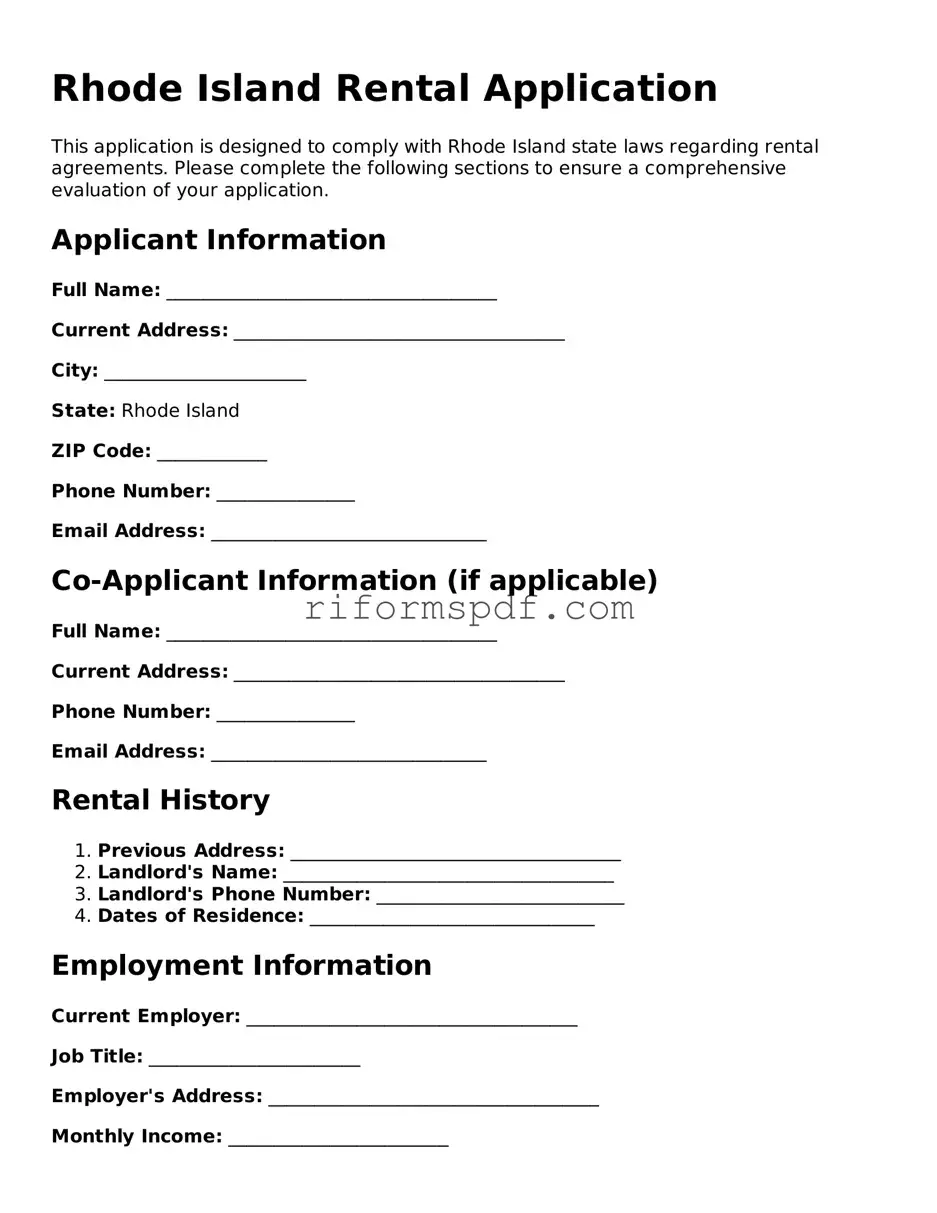Printable Rental Application Form for Rhode Island
The Rhode Island Rental Application form is a crucial document used by landlords to evaluate potential tenants. This form collects essential information about the applicant, including their rental history, employment details, and financial background. Understanding its components can help both landlords and tenants navigate the rental process more effectively.
Launch Editor

Printable Rental Application Form for Rhode Island
Launch Editor
Finish the form now and be done
Edit Rental Application online and skip the paperwork.
Launch Editor
or
⇓ PDF Form
